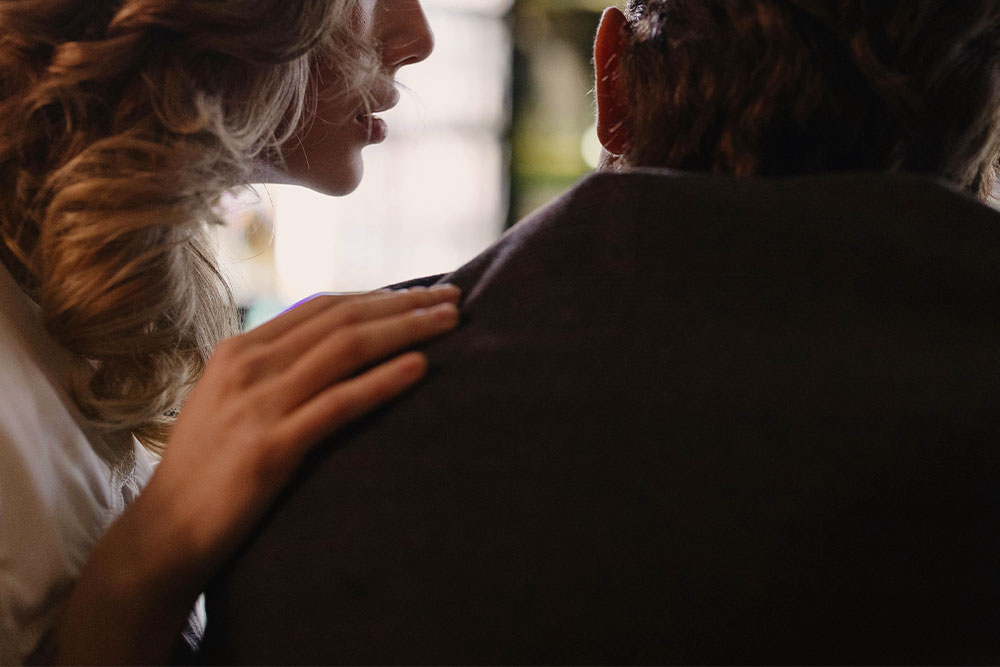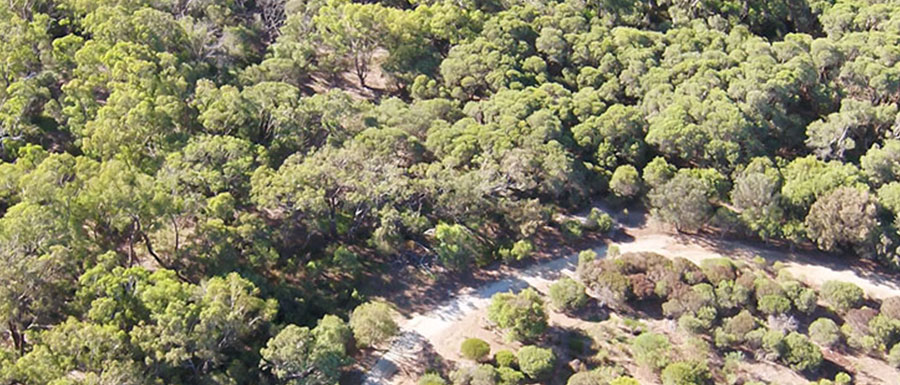What to do when someone dies

A practical guide to help you navigate the funeral process and procedures
At some time in life, everyone will experience the loss of someone close. The grief, confusion and numbness that accompany the news of a death can make decisions feel overwhelming. It is a time of sorrow, when navigating practical steps can seem daunting.
At Bowra & O’Dea, we have been supporting families for over 130 years with compassion and care. We offer this guide to help you understand what needs to be done when someone dies, from registering the death and obtaining official documents to engaging a funeral director.

Follow the deceased’s wishes
One of the most important steps after a person’s death is to locate their will and any other key documents. These will help you act on behalf of the person who died and can include instructions about funeral arrangements, if and where they would like their ashes to be spread, organ donation and care for dependants. These documents help guide decisions and ensure their wishes are respected.
A will may specify whether the person wanted a funeral, a memorial service, or no service at all. In Australia, holding a funeral is not a legal requirement, so it’s important to check if they expressed a preference. Their wishes may also extend to the style or location of the service, or any specific cultural or religious customs to observe.
If you’re unsure whether they were an organ or tissue donor, you can ask the hospital to check the Australian Organ Donor Register. This can help ensure their intentions are honoured promptly and respectfully.
You should also check for any guardianship instructions regarding children, other dependants or pets. These are often outlined in the will. If new care arrangements are required, they may impact Centrelink or other government support payments, so it’s important to notify the relevant agencies.
Registering the death
After someone has passed away, it is a legal requirement to register the death with the Registry of Births, Deaths and Marriages in your state or territory. In most cases, your funeral director will handle this process on your behalf, helping to ease some of the administrative burden during a time of grief.
To register a death, certain details are required, including the deceased’s full name, date and place of birth, parents’ names, marital status and information about any children. If you are unsure about these details, your funeral director can assist in gathering the necessary information.
Once the death is registered, the Registry will issue an official Death Certificate. This document is different from the Medical Certificate of Cause of Death, which is completed by a doctor or the coroner.
The timeframe for receiving the certificate can vary depending on the circumstances of the death and the requirements of the coroner, if involved. Your funeral director will keep you informed and provide a certified copy once it becomes available.
During this time, it’s not uncommon to feel overwhelmed or unsure. Please remember that the team at Bowra & O’Dea is here to support you, answering your questions and assisting with all necessary arrangements.
Bowra & O'dea
Need help?
If you’re unsure who needs to be notified or how to use the death certificate, Bowra & O’Dea can offer guidance and suggest resources to support you.


Using the death certificate
A funeral director provides a uniquely important service. From the moment they are contacted, their role is to support the bereaved with care, professionalism and respect. They must be able to advise on and manage every detail of the funeral, ensuring the family’s wishes are honoured while navigating legal, cultural and religious considerations. Above all, a funeral director must be compassionate, ethical and worthy of trust.
Key Responsibilities of a Funeral Director Include:
- Arranging all matters requested by the family, with sensitivity to legal, social, cultural and religious needs
- Transporting the deceased from the place of death to the mortuary
- Preparing the deceased for viewing or the funeral service
- Collecting medical certificates from the hospital or doctor
- Completing all necessary statutory documentation and forms
- Preparing and placing newspaper notices
- Liaising with clergy or a funeral celebrant
- Organising venue, church, cemetery and/or crematorium bookings
- Officially registering the death and obtaining copies of the death certificate
- Coordinating all elements of the funeral service, including vehicles and pallbearers
- Advising on religious and ceremonial practices before, during and after the funeral
What a Funeral Director Can Do for You
A funeral director provides a uniquely important service. From the moment they are contacted, their role is to support the bereaved with care, professionalism and respect. They must be able to advise on and manage every detail of the funeral, ensuring the family’s wishes are honoured while navigating legal, cultural and religious considerations. Above all, a funeral director must be compassionate, ethical and worthy of trust.
Key Responsibilities of a Funeral Director Include:
- Arranging all matters requested by the family, with sensitivity to legal, social, cultural and religious needs
- Transporting the deceased from the place of death to the mortuary
- Preparing the deceased for viewing or the funeral service
- Collecting medical certificates from the hospital or doctor
- Completing all necessary statutory documentation and forms
- Preparing and placing newspaper notices
- Liaising with clergy or a funeral celebrant
- Organising venue, church, cemetery and/or crematorium bookings
- Officially registering the death
- Obtaining copies of the death certificate
- Coordinating all elements of the funeral service, including vehicles and pallbearers
- Advising on religious and ceremonial practices before, during and after the funeral

Finalising an estate
Finalising a loved one’s estate involves managing and distributing their assets, settling debts and ensuring any legal responsibilities are completed. This process can feel complex, particularly while you are grieving, but there are steps you can take and professionals who can help ease the burden.
The first step is to determine whether the deceased left a valid Will. If there is a Will, the executor named in it is responsible for carrying out the instructions it contains. This includes applying for a legal document called probate, which confirms the Will is valid and gives the executor authority to manage the estate. If there is no Will, the estate is handled according to the laws of intestacy, and a next of kin or appointed administrator will take on this role.
Typical tasks involved in finalising an estate include:
- Applying for probate or letters of administration
- Notifying financial institutions and service providers
- Paying any outstanding debts
- Distributing assets to beneficiaries
- Managing superannuation or life insurance claims
- Finalising tax affairs
It’s often advisable to engage a solicitor or trustee company, especially if the estate is large or complex. They can provide guidance, ensure all legal obligations are met, and help avoid disputes between family members.
At Bowra & O’Dea, we understand this can be a difficult and unfamiliar experience. While we don’t manage estates directly, we can refer you to trusted professionals and offer general advice about the steps involved. Our goal is to help you move through this process with support, clarity and respect.

Repatriation from overseas
Losing a loved one while they are overseas adds another layer of complexity to an already emotional time. If someone dies outside Australia and you wish to bring them home, this process is known as repatriation. It involves coordination with local authorities, consulates, airlines and funeral service providers in both countries.
At Bowra & O’Dea, we have experience in managing international repatriations and can guide you through every step. We work closely with the relevant consulate or embassy, arrange documentation and ensure all airline and customs requirements are met.
Key steps in the repatriation process include:
- Liaising with appropriate government departments
- Obtaining necessary permits and clearances in the country of death
- Coordinating with overseas funeral providers to arrange transport and flight bookings
- Ensuring the deceased is cared for with dignity throughout the journey
Costs for repatriation can vary depending on the country and the services involved. If your loved one had travel insurance, it may cover some or all of the costs. We can help you understand your options and guide you through the paperwork.

Looking after yourself
In the midst of the responsibilities and practical decisions that follow a death, it can be easy to overlook your own wellbeing. Grief is a natural, deeply personal response to loss, and there is no right or wrong way to experience it. Some people feel shock or numbness, others sadness, anger or even relief—especially after a long illness. All of these emotions are valid.
Looking after yourself doesn’t mean you have to do everything alone. Accepting help from family, friends or professionals can make a big difference. Whether it’s someone to talk to, a meal prepared by a neighbour or support in managing tasks, small gestures can bring comfort during this time.
Consider:
- Giving yourself permission to grieve in your own way and at your own pace
- Speaking with a counsellor, support group or trusted friend
- Taking time to rest, eat well and care for your physical health
- Finding ways to honour your loved one’s memory that feel meaningful to you
Contact Us
Help when you need it
At Bowra & O’Dea, we believe caring for people goes beyond the funeral service. We offer grief support resources and can connect you with counsellors and community organisations that specialise in bereavement care.













